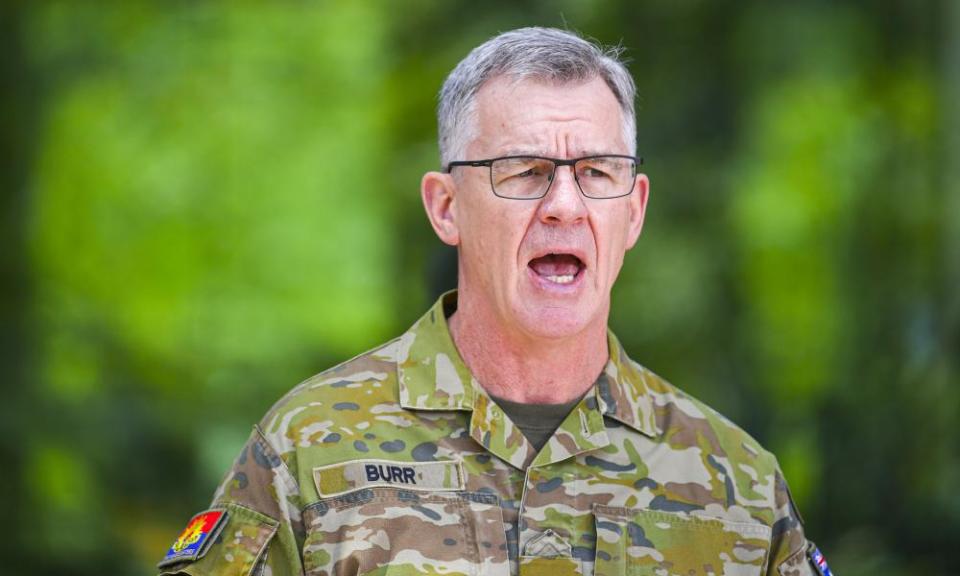Australian army chief defends defence leadership as 13 'show cause' notices confirmed

The army chief, Rick Burr, has promised that he and other defence leaders are “holding ourselves to account” amid growing anger that top brass have escaped any real sanction in the Brereton inquiry fallout.
Burr spoke to the media on Friday to confirm the army had issued 13 “show cause” notices related to the Brereton report, starting an administrative process that could see them removed from the ADF.
As he spoke, reports emerged that Scott Morrison had warned the defence chief, Angus Campbell, that he expected senior leadership to be held accountable for alleged war crimes in Afghanistan.
Burr was asked why he would not resign and why blame was being placed solely on soldiers and lower-ranking non-commissioned officers.
“There is a process to be followed here as we work through this,” he said. “We must ensure the privacy of all individuals. We are all holding ourselves to account as an organisation, and we’ll work through this in a proper way. That’s why we asked for the report.”
Multiple outlets, including the Guardian, revealed on Thursday that defence has started an administrative process to sanction ADF personnel who were still serving and were subject to adverse findings in the Brereton report.
The Brereton inquiry had recommended such action for serving ADF members where there was “credible information of misconduct which either does not meet the threshold for referral for criminal investigation, or is insufficiently grave for referral, but should have some consequences for the member”.
The show cause notices, sent on Monday, gave serving personnel just two weeks to plead their cases. Individuals can apply for more time if needed. Brereton had previously cautioned that the process must afford individuals procedural fairness.
Burr was at pains to point out that the process was fair and afforded a right of reply. He said the process would be “methodical” and would take time.
“Each matter and individual circumstance will be considered on a case-by-case basis. It is essential that privacy be respected and that procedural fairness is followed, and that no further comment be made until the process is complete,” Burr said. “It is critical that, for any judicial, disciplinary or administrative action, due procedural process must occur.”
The administrative action process is generally used as an alternative way of meting out penalties to serving personnel, and sits outside of the Defence Force Discipline Act, which contains offences that are prosecuted through the military justice system.
Administrative action can result in a range of punishments, including discharge.
Burr also confirmed that no individual had yet been terminated, contrary to some prior media reporting.
“Administrative action is a long-standing, well-established process within Defence that ensures the rights of individuals to due process and fair hearing,” he said. “This process is well-known to all in army.”

